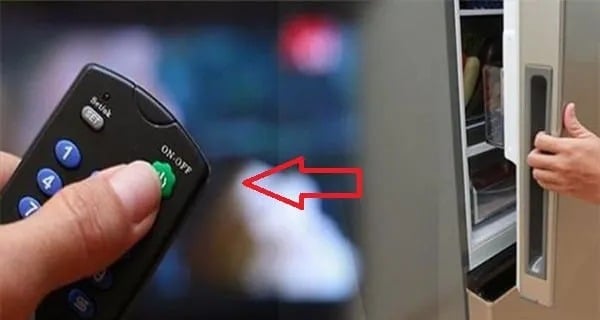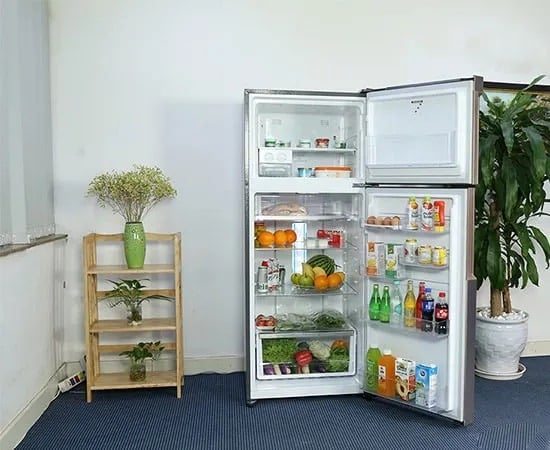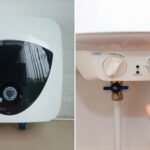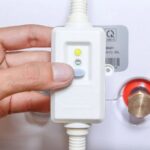Time Display Devices
Topping the list of power-consuming devices are those with time-display screens, commonly found in modern appliances such as washing machines, microwaves, ovens, and induction cookers, among others.
Despite their small size, these screens consume up to 108W per day (24 hours). Apart from displaying the time, they also maintain connections with the devices’ control systems.

Time-display screens, commonly found in modern appliances, top the list of power-consuming devices.
Refrigerators and Freezers
Refrigerators and freezers constantly turn on and off to maintain their temperatures, resulting in significant electricity consumption. They account for over 12% of a household’s total electricity usage. While it’s not feasible to turn off the fridge for short periods, you can save energy by regularly cleaning it and removing expired food so it doesn’t have to work harder than necessary.

Refrigerators and freezers consume a large amount of electricity as they constantly turn on and off to maintain temperatures.
Water Heaters
Water heaters can consume a significant amount of electricity if their power plugs are not removed after use. When the temperature in the heater drops below the set level, it automatically reheats, leading to higher electricity usage. Remember to unplug your water heater when not in use.
Iron
Despite its small size, an iron has a substantial power consumption, on par with an air conditioner (750W). If you use the iron for about 10 hours a week, your monthly electricity usage will be around 30 kWh. To save energy, limit your ironing time.
Cooling Fans
Cooling fans consume a considerable amount of power, ranging from 80W to 200W, and they lack the ability to turn off automatically like air conditioners. When used continuously for 6 hours daily, they can consume between 0.48 kWh and 1.2 kWh per day. While they provide cooling, their effectiveness doesn’t match that of air conditioners, and they can make the environment feel stuffy and uncomfortable. Therefore, they are not the optimal choice for efficient and energy-saving cooling.
Desktop Computers and Laptops
Both desktop computers and laptops continue to consume electricity even when they are turned off. On average, each device uses about 96W per day, equivalent to approximately three units of electricity per month for each machine. If left in standby mode, the power consumption can be up to 15 times higher, resulting in unnecessary energy wastage.
Phone Chargers Left in Power Sockets
Some people may have the habit of leaving their phone chargers plugged into power sockets even after their phones are fully charged. These chargers will still consume a small amount of electricity even when not connected to any device. While the financial impact of this may not be significant, it is important to note that leaving chargers plugged in can accelerate their aging process and potentially cause electrical safety hazards, including short circuits and fires. To avoid these issues and save energy, remember to unplug your phone charger from the socket when it’s not in use. Alternatively, if the power socket has a switch, you can turn it off without unplugging the charger.





































